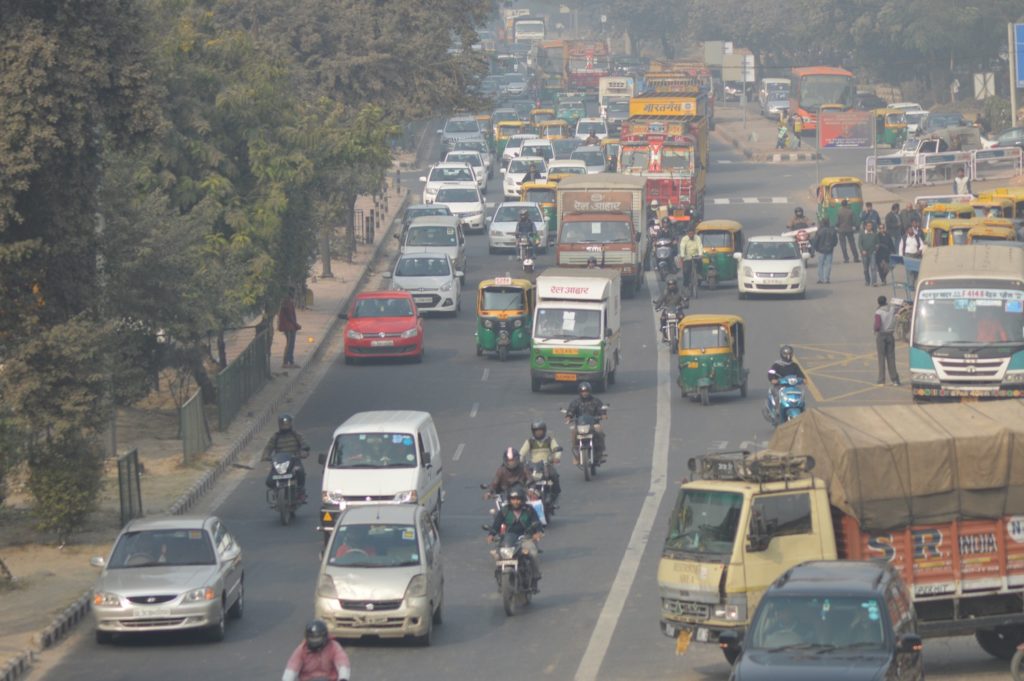Ban on BS-III vehicles causes stir

Supreme Court upheld the need for check on vehicular pollution .
After India’s Supreme Court upheld the ban in sales and registration of BS-III vehicles starting April 1, the country’s automobile industry is set for a transformation.
Being called the ‘demonitisation of the automobile industry’, Supreme Court’s decision on March 28 to outlaw sales and registrations of BS-III vehicles post April 1 has stirred the automobile industry in India. With initial amount of losses estimated to be close to EUR 11.25 billion upon implementation of the ban, automobile makers were hoping for an extension to clear off stocks.
Bharat Stage (BS) refers to emission norms set by the government for regulation of air pollutants resulting from internal mechanisms of vehicle engines. First launched in 2005 in the National Capital Region, vehicles were BS-III compliant in 13 other cities who followed suit and post 2010, it was a pan-Indian norm. BS-IV was also being tested since, and with development of compatible fuel, various bodies have observed that India is now ready to switch to this newer standard.
The Supreme Court observed, the “health of the people is far far more important than the commercial interest of automobile manufactures”. It added that automobile firms have declined to take “sufficient pro-active steps” despite being awareness of the requirement to manufacture only BS-IV compliant vehicles from 1 April, 2017. “We are companies of reputation. Don’t portray us as a villain. We are not running away. We also want that our environment should be pollution-free, and we are saying we will comply with the directions,” senior advocate A M Singhvi stated, according to local press, while representing Society of Indian Automobile Manufacturers (SIAM). Singhvi also asked for a year’s time to dispose of the inventory of BS-III vehicles in court.
The automobile industry has reacted in several ways to deal with the ban. With most stock of BS-III vehicles in two wheelers, bumper sales with large discounts have made consumers rejoice as prices dropped, making some vehicles cost less than high end smartphones. Tata Motors, India’s largest commercial vehicles maker shared in a statement “The Supreme Court order banning sale of all BS-III vehicles from April 1 is an unexpected and unprecedented move that will have a material impact on the entire automotive industry, OEMs’ and dealer networks and is a penalty to the entire automotive industry.” Analysts have predicted that the commercial vehicles sector is set to be impacted the most, in terms of revenue loss.
Two wheeler dealers in Ludhiana run out of stocks as they slash rates upto 40%. #BSIII @HTPunjab @htTweets pic.twitter.com/ABBVb8oh1c
— Sameer Singh Sapehia (@sam86singh) March 31, 2017
Boost to green lobby?
Even as air pollution levels are set to be affected once the new vehicles are on the road, there are doubts on the scale of impact in tackling a problem that is seriously affecting Indian citizens. However, green bodies have lauded Supreme Court’s decision to uphold the importance of public health over corporate interests. As reported by local media, Executive Director for Centre for Science and Environment (CSE), Anumita Roychowdhury said, “This is a significant step forward as this gives the message and the lesson that the automobile industry will have to walk the extra mile to address the expansive concern around public health and not weigh down the transition by taking a very narrow technical view.”
Sunil Dahiya, campaigner for Greenpeace India added, “Like vehicles, thermal power plants are also a big contributor towards air pollution, hence the next step in that direction is for the government to implement the December 2015 notification on emission standards for thermal power plants in a time-bound manner and not dilute them.”
The ban may have hit the automobile makers hard, but it remains to be seen what the full impact is on both the industry and pollution levels.









